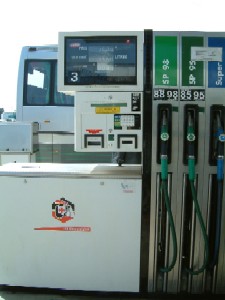
The Prime Minister has confirmed the creation of a transport check from January 1, 2007 to mitigate the consequences of the fuel price surge for employees.
It will function similar to a meal voucher and companies can implement it on a voluntary basis. (https://www.nicepremium.fr/article/un-«-cheque-transport-»-pour-amortir-les-prix-du-carburant.-.1037.html) The state will cover “half of the cost of this measure” in the form of a reduction in company charges. Laurence Parisot, the president of the Médef, declared that “the transport check is not a real solution to the energy problem”. She described the government’s policy as “very short-term policy”. She fears that this measure “prevents true wealth creation”. For the labor union FO, the transport check should be “mandatory” to provide a real “compensation for the significant increase in fuel prices” and for “those whose purchasing power has been deteriorating for quite some time now”. According to Jean-Claude Mailly, the cost of the scheme for companies would not represent an astronomical sum as, if it mirrors the “meal voucher”, it will be “tax deductible and socially deductible”. Still for Force Ouvrière, “a transport bonus will not solve the purchasing power problem which remains FO’s main battle. While there are expenses increasingly weighing on household budgets (rent, fuel, heating oil, EDF, GDF, mobile telephony), it is appropriate to once again focus on wages in the private and public sectors.”
Negotiations about the implementation of this transport check with the unions continue. Gérard Larcher, Deputy Minister of Labour, is managing this file. We should soon know all the requirements for companies and employees to benefit from this measure.
Second announcement: the revaluation of the employment bonus (https://vosdroits.service-public.fr/particuliers/F2882.xhtml). The Employment Bonus (PPE) will double in 2007 for employees on the minimum wage. It will increase to 940 euros (“almost a 13th month for those who are on the minimum wage”, added Dominique de Villepin.) This revaluation will affect 9 million French people. It should be remembered that Lionel Jospin introduced the PPE in 2001.
Bernard Thibault, secretary general of the CGT, expresses reservations about this measure: “I feel that the Prime Minister’s approach is clearly intended to anticipate possible grumbling from employees about the issue of purchasing power at the start of this year”. Through Jean-Jacques Mai, secretary general of the Union départementale FO 06, the Force Ouvrière Union estimates that “the ‘doubling’ of the employment bonus at the minimum wage level and a payment of 300 euros to scholarship students are always a good thing as they address the most disadvantaged salaried workers as well as students who are mostly a financial burden on parents but it is only a punctual measure and, in terms of wages, FO always prefers permanent increases. FO will therefore launch a national campaign of demands on wages across all professional sectors. Employees should also benefit from the effects of a recovery and not only the CEOs with golden parachutes and other astronomical stock options.”
After insecurity and unemployment, it seems that purchasing power has become a priority for the government. With the approach of significant electoral milestones, it was strategically opportune to think of French employees earning low incomes. It is undeniable that purchasing power will be one of the main themes of the upcoming presidential campaign. It will therefore be a debate to follow.


